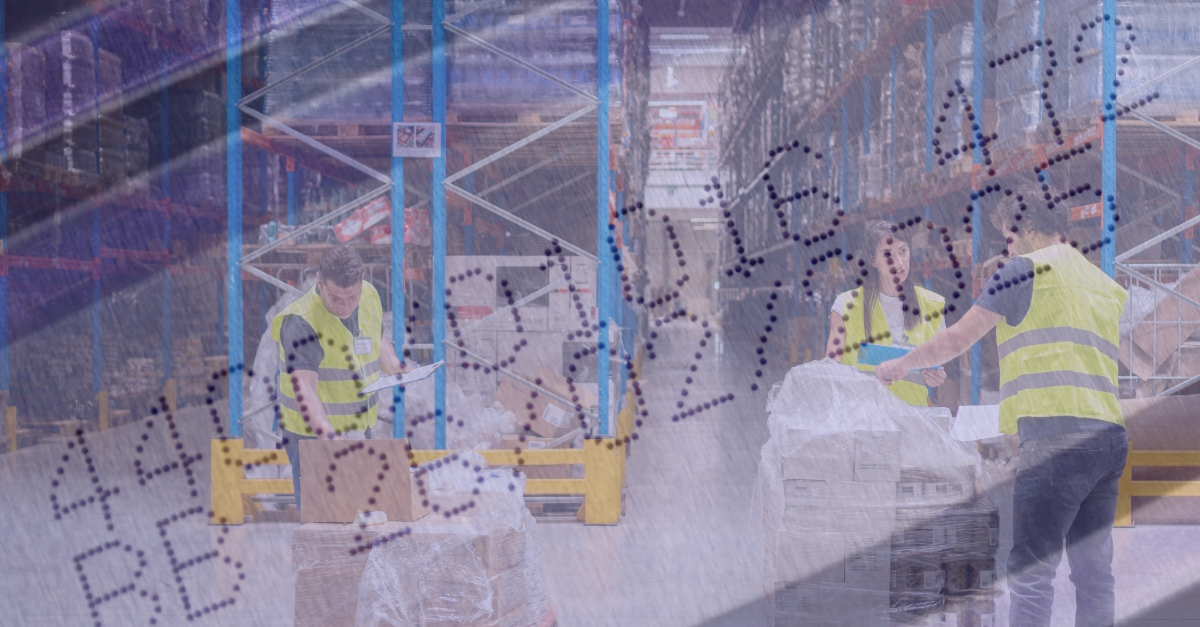Between logistical constraints and marketing requirements, how can this complexity be transformed into an opportunity? A look behind the scenes of a winning marketing strategy, where logistics become the strongest link in your commercial success.
Imagine for a moment: your marketing teams freed from logistical constraints, able to quickly and effectively deploy your promotional materials everywhere in France. This reality is possible thanks to a optimized management of POS logistics (Point of Sale Advertising) and trade marketing. Whether you are in fashion, cosmetics, electronics or any other sector, an innovative approach to POS logistics can become a real strategic asset. It makes it possible to optimize your presence in the field, to improve your reactivity to market trends, and ultimately, to strengthen your competitive position.
I. The specific challenges of modern POS logistics
Management of varied products and fluctuating volumes
In the current context, brands are facing increasing complexity in the management of their promotional materials. This diversity extends from small goodies with larger POS elements, requiring differentiated storage approaches. Inventory management is becoming a real challenge, especially during seasonal peaks in activity or product launches. Businesses need to maintain a delicate balance between immediate availability and optimization of storage costs. To meet these challenges,
- Differentiated storage needs
- Increased complexity in inventory management
- Logistical challenges for shipping and delivery
- Managing peak activity
Adapting to different points of sale and events
The multiplication of distribution channels represents a major challenge for contemporary brands. From traditional stores to pop-up stores, through corners and trade shows, each point of contact requires a specific logistical approach.. This diversification of delivery points requires increased flexibility in the management and distribution of POS displays, while maintaining consistency in the brand experience.
The challenges of sustainability and optimization of resources
Environmental responsibility has become an unavoidable imperative. Brands need to rethink their approach to POS by integrating ecological considerations every step of the way. This involves not only the use of sustainable materials, but also the optimization of logistics flows to reduce the carbon footprint. Establishing reuse and recycling processes is becoming a priority, as is the fight against waste in inventory management.
II. The impact of ineffective POS logistics on marketing strategies
Desynchronizing marketing campaigns
Inefficient POS logistics often lead to a delay between the launch of advertising campaigns and the effective presence of promotional materials at the point of sale. This desynchronization may prove to be particularly harmful during commercial events such as sales periods, end of year celebrations or product launches. For example, when a brand invests heavily in a national media campaign, the absence or delay of corresponding POS materials in stores creates a break in the customer journey and significantly decreases the return on marketing investment.
Degradation of the customer experience
The impact on the customer experience is often underestimated but particularly harmful. Empty displays, outdated or damaged promotional materials, or even an inconsistency between different points of sale create a sense of disorganization that damages brand perception.
Operational overload for marketing teams
The management of inefficient POS logistics mobilizes considerable energy from marketing teams. Instead of focusing on strategic tasks with high added value such as creating innovative campaigns or analyzing performance, teams find themselves managing time-consuming logistical issues:
- Search for lost promotional material
- Emergency coordination with carriers
- Complaints management points of sale
- Resolution of storage problems
Significant financial impact
The financial consequences of faulty POS logistics are multiple and can weigh heavily on the profitability of the company. In particular, we observe:
- Additional costs related to express deliveries to catch up on delays
- Losses due to dormant stocks and unusable equipment
- Of hidden costs linked to excessive mobilization of teams
Weakening relationships with business partners
Logistical dysfunctions can also deteriorate relationships with business partners. Points of sale, faced with late or incomplete deliveries, may lose confidence in the brand and favor the promotion of more reliable competitors. This situation can have a lasting impact on the brand's presence in distribution networks.
Inconsistency in multi-channel communicationIn the age of omnichannel commerce, consistency between the various points of contact is essential. Poor POS logistics can create discrepancies between digital communication and the in-store experience, thus compromising the effectiveness of the multi-channel strategy. Customers, exposed to online advertising messages, may be disappointed to not find the same promotions or promoted at the point of sale.
Faced with these multiple negative impacts, it is becoming obvious that optimized management of POS logistics is no longer an option but a strategic necessity. This is why solutions like Stockoss, which make it possible to reduce delivery errors by 95% and save an average of 5 hours a week on logistics management, become valuable allies for brands that want to maintain their competitiveness and operational excellence.
III. Innovative solutions for efficient and sustainable POS logistics
The integration of innovative technologies
The Internet of Things (IoT) and Artificial Intelligence (AI) are transforming predictive inventory management. These technologies will allow for more accurate forecasting of POS needs, thus reducing storage costs and minimizing the risks of stockouts. For example, IoT sensors could monitor the use of POS in stores in real time, while AI would analyze this data to predict future needs.
Sustainable logistics: a strategic priority
The Figaret brand illustrates this trend perfectly with its innovative approach to point of sale furniture. The brand has opted for modular solutions for its pop-ups and corners, allowing maximum flexibility in the layout of its ephemeral spaces. These modules, easily removable and reusable, adapt to different configurations while maintaining the brand's premium identity. This strategy makes it possible not only to optimize logistics costs but also to reduce the environmental impact by extending the life of retail equipment.
The circular economy at the heart of new practices
Specialized players such as Valdelia transform the end of life management of POS displays into an opportunity. Their integrated approach reconditioning, recycling and valorization in a virtuous cycle. Chep innovates with a system for renting reusable POS displays, including maintenance and rotation between points of sale, drastically reducing the environmental impact.
This evolution towards more innovative and sustainable POS logistics represents a strategic investment. Brands that adopt these solutions not only demonstrate their environmental commitment but also optimize their operational efficiency, creating a sustainable competitive advantage.
IV. ASUS concrete case
The ASUS experience is a perfect illustration of the benefits of optimized POS logistics. By centralizing the management of its event stocks on 250 m² including POS, goodies and furniture, the company has considerably improved its operational efficiency. As Leslie Cuynat, Head of B2C Marketing France, points out: “By outsourcing our event stocks, we have simplified our operations and made dispatch faster and smoother with simplified deliveries everywhere in France.”
Conclusion
POS logistics and trade marketing are becoming essential strategic levers for modern brands. Stockoss, drawing on its expertise with prestigious clients such as LVMH, Christian Louboutin and Yamaha, offers a comprehensive solution that allows brands to focus on what matters most. With concrete results - a 95% reduction in delivery errors and an average gain of 5 hours per week on logistics management - Stockoss is the ideal partner for brands wishing to optimize their POS logistics management.
Do you want to transform your POS logistics into a competitive advantage? Contact us!

A world leader in computing, Asus has redesigned its promotional logistics with Stockoss. By centralizing its stocks of POS, goodies and furniture, Asus has gained in efficiency, freed up space on its premises, and offered its teams a flexible and digital tool to simplify their daily lives.




